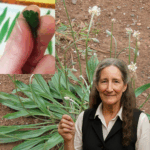Michelle Obama Opens Up About Daily Racism: “Sometimes We’re Invisible”
On a recent episode of The Michelle Obama Podcast, former First Lady Michelle Obama offered a candid look into her personal experiences with racism in America—experiences that she says many white people simply don’t understand.
“There are daily slights,” Obama explained. “Things that make you feel invisible, or like a threat, just because of the color of your skin.”
.
.
.
Feeling Invisible in Everyday Life
Michelle recounted a moment after taking her daughters, Malia and Sasha, to a soccer game. While waiting in line for ice cream, a white woman cut in front of them as if they weren’t even there. “She didn’t apologize, she didn’t even look me in the eye. All she saw was a Black person, or maybe she didn’t see us at all,” Michelle said. Even as a globally recognized figure, she has often been treated as invisible. “People will come up and pet my dogs, but won’t look me in the eye. They don’t know it’s me.”
For Michelle, these moments are telling about how much of white America views people who are different. “We don’t exist. And when we do exist, we exist as a threat. And that’s exhausting.”

The Weight of Stereotypes and Public Scrutiny
Michelle Obama has spoken before about the challenges of being the first Black First Lady. In her Netflix documentary “Becoming,” she recalled the pressure and the racist stereotypes she faced while campaigning and during her years in the White House. “The only thing I can do is share that it does hurt,” she said. “If we walk around pretending like it doesn’t hurt, the perpetrators just say, ‘Oh, I was just joking. It’s just politics.’ But no, that changes the shape of a person’s soul.”
She also revealed to Oprah Winfrey that she cried for thirty minutes on her final flight out of Washington after eight years in the White House—a release after years of trying to do everything perfectly under intense scrutiny.
Racism in Education and the Power of Friendship
Michelle’s experiences with racism began long before her time in the public eye. In her memoir, she wrote about how her freshman roommate at Princeton switched dorms after learning Michelle was Black. The roommate’s mother was so upset that she pressured the university to separate them.
Through it all, Michelle credits her close-knit group of friends—especially Black women—as a crucial support system. “There’s a certain relief that comes when you don’t have to walk into your friend group and explain yourself,” she said. These friendships have been even more important during the Black Lives Matter movement. “My group of female friends aren’t calling me to say, ‘What can I do?’ They’re calling to say, ‘How are you doing, girl? Let’s talk.’”
Michelle Obama’s stories are a reminder that, even for those at the highest levels of achievement, the sting of racism is real and lasting. Her openness offers a powerful perspective on the daily realities faced by people of color—and the importance of community and understanding in the fight for equality.
News
Heartbreaking: Hulk Hogan’s Last Wish Revealed—You Won’t Believe His Ultimate Regret!
Hulk Hogan’s Final Tragedy: Wrestling Icon Dies Estranged from Family, Never Meeting His Grandchildren July 2025 – The world of…
Astronomer Hires Gwyneth Paltrow—Her EPIC Response to Chris Martin’s Controversy!
Gwyneth Paltrow’s Ultimate Power Move: How She Turned Her Ex-Husband’s Joke Into Tech’s Most Brilliant PR Stunt Boston, 2025 In…
Leaked Footage SHOCKS Fans: Kristin Cabot & Billionaire Andy Byron in Hot Water After Coldplay Kiss Cam!
The $38 Million Kiss: How a Viral Coldplay Concert Clip Sparked the Most Expensive Scandal in Tech History Boston, July…
Melania BETRAYS Trump: Epstein Bombshell DROPS at the WORST Possible Moment!
Melania’s Revenge: Will Trump’s Wife Be the Ultimate Betrayer in the Epstein Scandal? She Was Never Loyal—And Now the Truth…
Elon Musk EXPOSES Trump’s Criminal Secrets—Ghislaine Coverup UNRAVELS LIVE!
When Justice Is for Sale: The Maxwell Gambit, Trump’s Power Play, and America’s Crisis of Truth Washington, August 2025 —…
King Charles SHOCKS Trump & Melania With LIVE TV Bombshell—Watch Trump Explode!
The Final Unraveling: Trump’s Epstein Inferno Reaches the Palace Gates August 2025, London/Washington — The wildfire of the Epstein scandal…
End of content
No more pages to load












